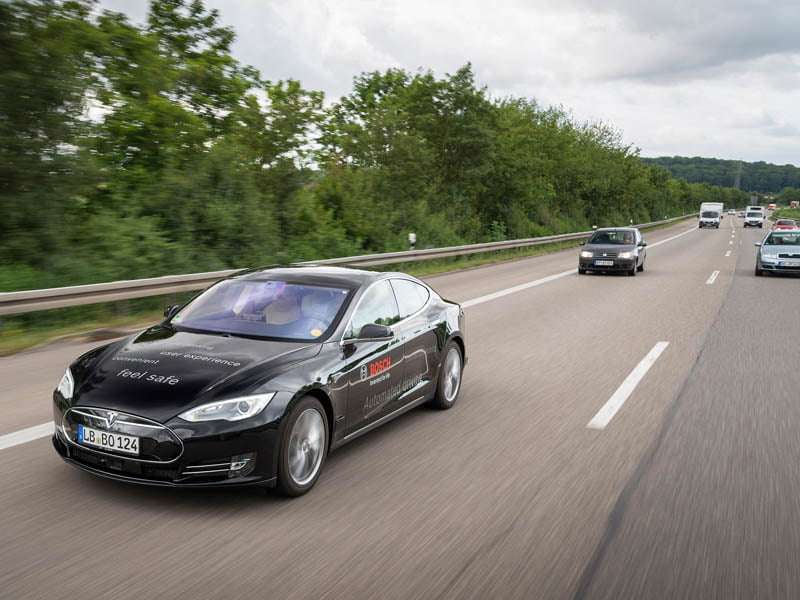Driverless cars have been getting a bit of attention recently, but most people think they are still some way in the future. They may be closer than you think, and Australia is at the forefront of development.
Driverless cars will be tested on Australian roads for the first time in November 2015, in a trial overseen by the ARRB Group, Australia’s national independent road research agency.
With the support of the South Australian Government, the ARRB has formed the Australian Driverless Vehicle Initiative, whose members include Swedish car manufacturer Volvo, German auto electrical company Bosch, Flinders and Carnegie Mellon Universities, and Telstra.

Another key member of the consortium is Adelaide company Cohda Wireless, which in 2013 attracted investments from giant US communications vendor Cisco and Dutch semiconductor company NXP, which spun out of Philips.
Cohda Wireless, which began life at the University of Adelaide, has implemented its s‘C2C’ connected car systems in trials around the world, including Europe, the US and now Australia. Its technology allows cars to communicate wirelessly, exchanging data including location, speed and direction, allowing 360-degree driver awareness even when line-of-sight is obstructed by buildings or other obstacles. It has sold its technology to General Motors and a number of other car manufacturers.
The Adelaide trial will be held in conjunction with a major Driverless Vehicle Conference to be held in Adelaide and hosted by ARRB and the South Australian Government on 5-6 November. The conference will bring together leading local and international experts from industry and academia, including technology partners Telstra, Volvo and Bosch.
One of the keynote speakers at the conference is Volvo’s Senior Technical Leader in crash avoidance, Dr Trent Victor, an internationally recognised safety expert who has worked in the field for more than 20 years.
For the trials Volvo will bring the same XC90 vehicle from Sweden that is being used in its innovative Drive Me project – a program that it says will put self-driving cars in the hands of customers by 2017. Your correspondent sat in this vehicle and sounded its horn on the Ericsson stand at the Mobile World Congress in Barcelona in March – it is a wondrous (and extremely attractive) piece of automotive design.
The actual testing will be undertaken by Volvo, Flinders University, Carnegie Mellon University, the South Australia motorist body RAA, and Cohda Wireless. The trials will take place on the southbound track Adelaide’s Southern Expressway in November with multiple vehicles conducting manoeuvres such as overtaking, lane changing, emergency braking and the use of on and off ramps.
ARRB managing director Gerard Waldron said automated vehicles are far from science fiction, but rather a short-term reality that Australia needs to be prepared for.
“The advent of driverless cars is an opportunity to foster technological innovation and revive Australia’s manufacturing industry,” said Waldron.
“ARRB will establish how driverless technology needs to be manufactured and introduced for uniquely Australian driving behaviour, our climate and road conditions, including what this means for Australia’s national road infrastructure, markings, surfaces and roadside signage. “ARRB is uniquely placed to undertake this initiative,” he told InnovationAus.
“We are connected with similar bodies in other countries, so we know what is happening internationally in the automated vehicle space. This initiative puts Australia on the map along with the UK, the US and Sweden as international leaders in automated vehicle research.”
He said the trials in South Australia will be the first of many trials nationally, with discussions underway in a number of other states.
“Driverless cars have a range of benefits that could significantly improve road safety and the quality of life of everyday Australians,” he said.
“They can add to the nation’s economic competitiveness and help relieve rapidly growing congestion that is crippling our infrastructure and creating productivity deficits in our capital cities. We’re seeking technology and automotive industry partners to assist us in Australia’s driverless vehicle innovation.”
InnovationAus asked Waldron why Volvo was involved, and not other car manufacturers. “They put their hand up first,” he said. “We do expect other manufacturers to come on board.” Similarly, South Australia was more proactive than the other states, he said.
Kevin McCann, Managing Director of Volvo Australia said: “As a leader in the development of autonomous drive technologies, Volvo’s aim is to make this technology realistically available for customers in production cars in the near future.
“At Volvo we believe autonomous drive will lead to significant consumer and societal benefits, including improved traffic safety, improved fuel economy, reduced congestion, and the opportunity for improved infrastructure planning.
The initiative puts South Australia at the forefront of global automated vehicle research. Premier Jay Weatherill said: “This trial presents a fantastic opportunity for South Australia to take a lead nationally and internationally in the development of this new technology and open up new opportunities for our economy.
“This trial presents a fantastic opportunity for South Australia to take a lead nationally and internationally in the development of this new technology and open up new opportunities for our economy,” he said.
“It’s predicted that within just 15 years, the international driverless car industry will be worth $90 billion, so we want to encourage other global businesses to come to South Australia to develop and test their technologies.
“Driverless cars have the ability to revolutionise transport in this country and we want to be at the forefront of that paradigm shift. It is our ambition to be a test bed for innovation across a whole range of areas such as this.”
For more information about the tests, have a look here. see https://www.arrb.com.au/Transport/Self-Driving-Vehicles.aspx
Do you know more? Contact James Riley via Email.

